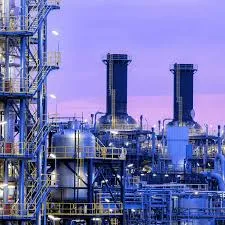
Июл . 28, 2024 14:46 Back to list
Understanding Various Types of Steam Used in Boiler Operations and Their Applications
Types of Steam in Boilers A Comprehensive Overview
Boilers are an integral component of many industrial processes, generating steam for a wide array of applications including power generation, heating, and manufacturing. Understanding the different types of steam produced by boilers is crucial for optimizing their performance, efficiency, and safety. This article explores the primary types of steam generated in boilers, highlighting their characteristics and applications.
1. Saturated Steam
Saturated steam is one of the most common types of steam produced in boilers. It is steam that is in equilibrium with liquid water at the same temperature and pressure. At this point, any heat added to the system will convert additional water into steam without increasing temperature, making it crucial in processes where uniform temperature and pressure are needed. Saturated steam is widely used in heating applications such as residential heating systems, food processing, and sterilization in hospitals. Its efficiency and effectiveness in heat transfer make it an attractive choice for many industries.
2. Superheated Steam
Superheated steam is steam that has been heated beyond its saturation point at a given pressure. This process involves adding heat to saturated steam, which raises its temperature while maintaining constant pressure. The ability to carry more energy compared to saturated steam makes superheated steam particularly useful in applications such as turbine generation, where maximizing energy extraction is vital. Superheated steam is commonly used in power plants, particularly in the steam turbine cycle, as it enhances efficiency and helps prevent corrosion in turbine blades.
3. Wet Steam
types of steam in boiler

Wet steam, also known as damp steam, contains both water droplets and steam. It occurs when steam does not fully vaporize, which can occur due to insufficient heat or pressure. While wet steam can be beneficial in certain applications, such as in hydronic heating systems, it is generally undesirable in most industrial processes because the presence of water can lead to equipment damage and reduced efficiency. Wet steam must be carefully managed, as it can adversely affect the performance of turbines and other steam-operated machinery.
4. Flash Steam
Flash steam is generated when water is suddenly subjected to a drop in pressure, causing a portion of the water to vaporize instantly. This phenomenon occurs in processes such as condensate recovery systems, where high-pressure condensate is returned to a lower pressure system. Flash steam is valuable because it can be captured and reused, enhancing overall boiler efficiency and reducing energy costs. Industries that leverage flash steam can benefit from improved sustainability and lower operational expenses.
5. Quality of Steam
The quality of steam, typically expressed as a percentage, refers to the ratio of steam to liquid water in a mixture. High-quality steam consists primarily of vapor, while low-quality steam contains a significant amount of liquid water. Managing steam quality is essential for efficient boiler operation and optimal performance of steam-using equipment. In applications such as power generation and industrial heating, maintaining high-quality steam is critical to minimize the risk of corrosion and erosion in pipes and machinery.
Conclusion
Understanding the different types of steam produced in boilers is essential for optimizing industrial processes and ensuring the efficiency and safety of operations. Saturated steam, superheated steam, wet steam, flash steam, and steam quality each play unique roles in various applications. By selecting the appropriate type of steam for specific processes, industries can enhance productivity, reduce costs, and improve energy conservation. As technology advances, ongoing research and development will continue to evolve steam generation techniques, contributing to more efficient and sustainable boiler operations.
-
Best Steam Boiler Design PDF Free Design Calculation & Diagram Downloads
NewsJun.10,2025
-
Hot Boiler Water Heater Efficient Heating Solutions for Home & Commercial Use
NewsJun.10,2025
-
Steam Boiler Safety Devices High-Quality Protection Valves
NewsJun.10,2025
-
Ultimate Steam Boiler Checklist for Safety & Efficiency
NewsJun.10,2025
-
Optimal Hot Water Boiler Temperature Setting Guide
NewsJun.10,2025
-
Effective Hot Water Boiler Chemical Treatment Protect & Maintain
NewsJun.09,2025
Related PRODUCTS






















